“Character cannot be developed in ease and quiet. Only through the experience of trial and suffering can the soul be strengthened, vision cleared, ambition inspired and success achieved.”
~ Helen Keller

From a certain angle, a writer’s job can be boiled down to three simple words: “Make me care.” Consequently, a note screenwriters often get is that they need to make their lead more “sympathetic,” more “likable.” Reasonable enough in theory, but how exactly? It’s a little vague, like telling a chef to make a meal more tasty. But, as with cooking, if you break it down, I believe there are some time-tested techniques which go into making us relate to and care about what happens to your hero.
1. MAKE THEM “NICE”
As in real life, we tend to like the person who is kind to children, old people and small animals. The witty, generous, principled, clever, resourceful, helpful, polite, thoughtful, etc. person is “likable.” This is not rocket science, it’s something we all understand on a very basic level. Thus, the small gesture that tells us someone is “good” is one technique that’s often employed in order get us to relate to and root for a character. Blake Snyder’s book on screenwriting, SAVE THE CAT, is named for precisely this approach of early on having your hero do some small— sometimes very small— thing that tells us he’s got a good heart.  I find this sort of tactic a bit obvious and creaky, but if you can find a way to put a fresh spin on it, make it feel genuinely organic to the story and not just shoehorn it in, it can be useful. That said, while being ‘nice’ can make us like someone, at least in a superficial way, it can also feel generic and bland. More importantly, you’re also going to want to—
I find this sort of tactic a bit obvious and creaky, but if you can find a way to put a fresh spin on it, make it feel genuinely organic to the story and not just shoehorn it in, it can be useful. That said, while being ‘nice’ can make us like someone, at least in a superficial way, it can also feel generic and bland. More importantly, you’re also going to want to—
2. TORMENT THEM
As the writer/creator generally you want to fall in love with your lead— to understand them, and want to see them succeed at achieving whatever it is they’re after. And then you must torture them mercilessly on the road to it.
What really takes things up another notch in terms of making us want to root for a hero is to have him be what I call treated unfairly by the fates. I believe that most of us have an intrinsic sense of justice, especially when we’re objective observers, when we have no dog of our own in the fight. We all want to believe there is a somehow a fundamental fairness at work in the world, and yet we all also know that life simply isn’t fair. Still— we relate to and feel for someone who we feel has suffered some sort of injustice, either at the hands of another person, an institution, or simply at the mercy of ‘the fates’. Thus, the person who is disabled, an orphan, discriminated against, stolen from, jilted, bereaved, falsely accused, stricken by disease, abused, ridiculed, or just plain unlucky and struggling to get along in this life is almost automatically inherently sympathetic.
Taking this thinking a step further, what we are most sympathetic to, what tugs at our heartstrings even more firmly, is someone who we feel has been treated unfairly by the fates, but instead of lying down and feeling sorry for themselves, decides to stand up and fight. That fight, that willingness to determinedly go after whatever it is they most want and not give up, is what engages our sympathies most of all. This sort of response of taking action is what we root for, and not incidentally what we aspire to be able to do in our own lives when the going gets tough and the world beats us down. We all know only too well that we simply can’t control everything that happens to us, but to the extent that we can control how we respond, that is what truly matters. 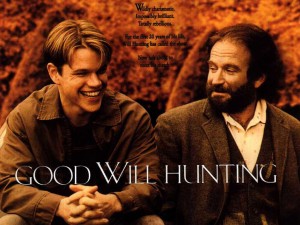
Take a look at a few Oscar winning screenplays and see how many deal with a main character who’s been somehow unfairly treated by the fates, and who then has to transcend themselves somehow in order to live a more free, full life: 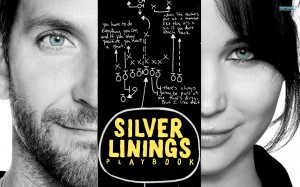 GOOD WILL HUNTING, ERIN BROCKOVICH, SILVER LININGS PLAYBOOK, ROCKY, TOOTSIE, THE KING’S SPEECH, FORREST GUMP, PRECIOUS, SLUMDOG MILLIONAIRE, MOONSTRUCK, LITTLE MISS SUNSHINE — the list goes on.
GOOD WILL HUNTING, ERIN BROCKOVICH, SILVER LININGS PLAYBOOK, ROCKY, TOOTSIE, THE KING’S SPEECH, FORREST GUMP, PRECIOUS, SLUMDOG MILLIONAIRE, MOONSTRUCK, LITTLE MISS SUNSHINE — the list goes on.
So ask yourself, how has your lead somehow been dealt an unfair blow? Suffered some sort of injustice? Put simply, how have they been hurt? It can be either in backstory— as in BRIDESMAIDS where Annie lost her dream of owning a bakery to a lousy economy; as 40-YEAR-OLD VIRGIN, where for one unfortunate reason and another, sex just never quite happened for Steve Carrell’s Andy; as in THE KING’S SPEECH or in GOOD WILL HUNTING where we learn that the leads were abused as children.
Or it can be after the story begins— as, for example, in FINDING NEMO, where Nemo’s mother and all his would-be siblings are killed in the rather shockingly dark opening sequence, and shortly thereafter he’s abducted by a diver. 
Once you’ve considered what wound they may have suffered, you’ll want to be sure to—
3. IDENTIFY WHAT THEY WANT
This may seem obvious, but you’d be surprised how many scripts I read where the thing the main character is after is unclear. What your lead wants is her goal, and the action she takes in their pursuit of that goal is the engine of your story. The complications that result and obstacles that arise test your lead and force her to prove how badly she wants to achieve it. The goal can be anything, but it needs to be clear, certainly by the end of the first act, and equally importantly, the audience ought to be able to understand why the hero wants this particular thing so much; to understand what larger, more universal thing it represents to her.
Then, you’ll also want to —
4. IDENTIFY (for yourself) WHAT THEY NEED
Even if you never have the character speak this outright, (which you probably shouldn’t), you’ll want to decide what your hero needs to learn as a human being. You want to think about in what way they need to change or grow in order to live a fuller, freer life.
This, if you work backwards, means that at the beginning of the story you have to determine in what way(s) your lead has been somehow complicit in their own misery, how they’ve not been living their best life thus far. 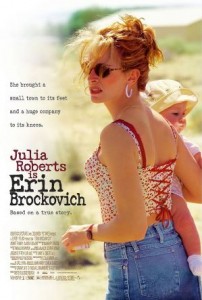
Have they been resigned, selling themselves short or settling because they didn’t have to courage to fight for something better? Were they complacent? Lazy? Naive? Too cautious? Too cynical? Too impulsive? Whatever it is, this quality is what will underlie their character arc. It points to the thing they need to learn, the way in which they need to grow in “character” over the course of the story. I believe the fundamental reason we innately find stories so compelling is that they speak to us of our own need to find “the courage to change the things we can”; to find the strength to take the reins of our own lives in order to lead our most fulfilling, productive, authentic life possible.
And finally,
5. MAKE THEM REALLY FIGHT FOR IT
So, your lead has somehow been mistreated, cheated, abused, abandoned, taken advantage of, injured, or has just been plain unlucky— and perhaps thus far in life, has settled for this status quo. But then something happens— usually an inciting incident about ten pages into your story— which ratchets up the pressure on them. Now, they have a real problem and, as previously mentioned, the movie is what they DO about it. Note the word “do”, it’s not just what they “say” about it. It’s the action they take to change their situation; how they fight to overcome whatever obstacles they face on the road to the goal they’ve identified for themselves and how they grow as a human being as a result of that journey.
In the case of each of the movies listed above, the lead is struggling as the story opens and must take some sort of action, and that requires courage and usually very hard work. Their ability to summon this courage and face whatever obstacles may come is the crux of what makes us invest. Movies are about about that point in a character’s life where they are forced to rise to the occasion— to sink or to swim. And the more unfairly the fates, (and/or the villain(s) have conspired against them, the more unjustly they’ve been treated and the harder they fight to overcome whatever obstacles are thrown in their path en route to their goal, the more invested we become in their struggle.
It’s my contention that the reason stories like this have so much resonance for audiences is that pretty much everyone on some level sees themselves as the underdog. Even the Duke of York, the future king of England in THE KING’S SPEECH, is an underdog. Everyone, no matter how seemingly powerful, has their own battles to fight. Rare to downright non-existent is the person who hasn’t at one time or another felt lonely, afraid, anxious, vulnerable, hurt, betrayed, angry, etc. We’re all mortal, flesh and blood, we all suffer our own particular slings and arrows. 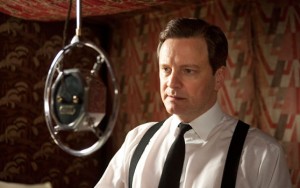
These experiences, in their infinite variety yet universal commonality, are part of the human condition, and so we feel for characters who find themselves in challenging situations, particularly when they’re not primarily of their own making. When someone has been unjustly victimized, underestimated by the world, treated unfairly, dealt a bad hand, etc., and then rather than roll over and die, decides to take a stand and fight for a better life, that makes us want to root for them more than almost anything else. That fight, the digging deep and summoning of the courage and willingness to face down their fears and demons, both internal and external— to do whatever it takes and not give up— is at the heart of what makes us invest and care.
So, before you start down the road of writing your script, see if you can’t pin down these signposts which can help keep you on track. Think about your hero’s wound, identify both what they want and what they need, and then really force them to struggle, fight hard and ultimately change somehow in order to achieve their goal. Keeping these elements in mind will help you to create both a hero your audience will emotionally relate to, and a story they’ll find compelling.
(This is an article I recently contributed to the screenwriters website Talentville.com . Plenty more useful information there.)

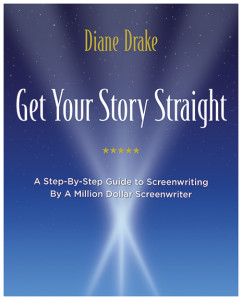
Very helpful! Thank you.
Karen
Thanks, Karen — am pleased to hear you found the info useful!
This article will be extremely helpful in getting to know my characters better. Thank you!
Thanks, Sandra– that’s really nice to hear. Happy writing!
Well this was a useful read. Thank you!
Thanks for taking the time to share that, Ruth. Glad to hear you found it of use.
Thank You…
Exactly what I needed to kickstart my creative juices…
Norm
Sad to see so few comments on such an important issue! Somewhere, MANY years ago, I read an article that pointed out five ways that scriptwriters establish their lead characters in the first few minutes of a movie. I vaguely recall that scriptwriters show them as being “good at their job,” “kind to children,” and “vulnerable.” I’ve been trying to remember what the other two techniques were, and went searching. Couldn’t find the original article but yours is very much on point. Thanks for sharing–and feel free to write MORE about this!
Thanks so much for your nice comment, Scott. Am pleased to hear you found this post helpful! (And yes, I really do need to blog more… ; )